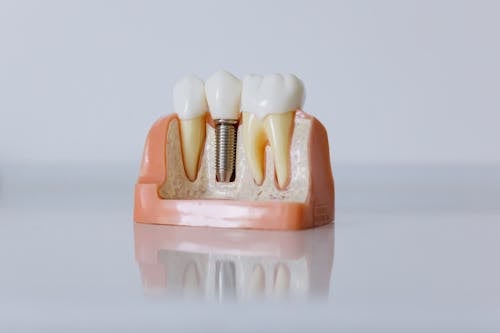Understanding Dental Implant Complications and Their Management
Dental implant complications can significantly affect a patient's oral health and overall satisfaction. Understanding the types, causes, and management of these complications is crucial for successful implantology. This article explores common issues like infections, nerve damage, and implant failures, providing insights into prevention and treatment options to enhance patient outcomes.
Overview of Dental Implant Complications
Dental implant complications are an important concern for both dentists and patients, as they can lead to significant discomfort and financial burden. These complications can range from mild issues such as minor infections to severe cases involving catastrophic failure of the implant. In this context, understanding the various types of dental implant complications is essential. Studies have indicated that the prevalence of such complications varies, with certain risk factors like smoking, poor hygiene, and insufficient bone density exacerbating the situation. It is vital for dental professionals to educate patients about the signs of potential complications, encouraging regular follow-ups to monitor implant health. By fostering awareness, both parties can better manage expectations and outcomes surrounding dental implants.
Common Types of Dental Implant Complications
Among the many dental implant complications, peri-implantitis stands out as a frequent issue, characterized by inflammation and infection in the tissues surrounding the implant. This condition can lead to bone loss if not addressed promptly, necessitating interventions that may involve antimicrobial treatments or even surgical corrective measures. Another notable complication is implant failure, which occurs when the implant does not properly integrate with the jawbone, often due to inadequate bone density or infection. Additionally, nerve damage can occur during the placement of dental implants, potentially resulting in numbness or constant pain. Understanding these complications is vital for both pre-operative planning and post-operative care.
Causes of Dental Implant Complications
Various factors can contribute to dental implant complications, making it crucial for clinicians to identify potential risks early. Poor oral hygiene is a significant cause, as it can lead to infections and other complications. Additionally, systemic diseases such as diabetes can impair healing and integration processes necessary for successful implant placement. Other factors include the patient's anatomical considerations, such as insufficient jawbone or proximity to anatomical structures like nerves and sinuses. Furthermore, improper surgical techniques and implant placement can compromise outcomes. Adequate pre-operative assessments and imaging can help in predicting and mitigating these issues.
Management and Prevention Strategies
Preventing dental implant complications requires a multifaceted approach that includes careful treatment planning and patient education. Regular maintenance and hygiene practices are paramount, as they directly influence the longevity of the implants. Routine check-ups can help in early detection of any developing complications, allowing for swift intervention. Employing advanced imaging techniques can enhance the precision of dental implant placement, potentially reducing the risk of complications. In cases where complications have already arisen, treatment options include antibiotics for infections, bone grafting for bone loss, and custom adjustments to the implant itself. Collaboration between dental professionals and patients is essential in managing these potential complications.
Psychological Impact of Dental Implant Complications
Beyond the physical consequences, dental implant complications can have profound psychological effects on patients. The anticipation of having a restored smile can be overshadowed by the fear of complications, anxiety surrounding procedures, and overall dissatisfaction with oral health outcomes. Patients may feel discouraged by setbacks, which can affect their motivation to pursue dental care or maintain good oral hygiene. Addressing these psychological aspects is crucial; practitioners should provide support and reassurance throughout the treatment process. Furthermore, sharing success stories of others who have navigated implant complications can serve as encouragement.
Conclusion: Navigating Dental Implant Complications
In conclusion, while dental implant complications can pose challenges, the key to successful outcomes lies in understanding, prevention, and management strategies. Through continuous patient education, meticulous planning, and a proactive approach to potential issues, dental professionals can significantly reduce the incidence and severity of complications. By fostering a collaborative relationship with patients and providing ongoing support, dentists can help them navigate the complexities of dental implant procedures, ensuring a more satisfying dental experience.
